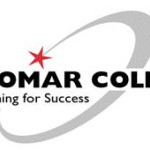- Industrie: Education
- Number of terms: 12355
- Number of blossaries: 0
- Company Profile:
Founded in 1946, Palomar College is a public two-year community college in the city of San Marcos, located in north San Diego County, California. Palomar offers over 300 associate degree, certificate programs and is designated by the U.S. Department of Education as an Hispanic-Serving Institution ...
An alteration of genetic material such that a new variation is produced. For instance, a trait that has only one allele (A) can mutate to a new form (a). A mutation can be a change in DNA bases or changes in chromosome number and /or structure. Mutation is the only mechanism of evolution that can produce new alleles of a gene. See mutagen.
Industry:Anthropology
An allele that is masked in the phenotype by the presence of a dominant allele. Recessive alleles are expressed in the phenotype when the genotype is homozygous recessive (aa).
Industry:Anthropology
An agent that can cause a mutation to occur. Various kinds of chemicals, viruses, and radiation have been identified as mutagens.
Industry:Anthropology
An abnormal accumulation of fluid around the brain causing it to swell. This potentially life threatening condition can be caused by hypoxia at high altitude. See pulmonary edema.
Industry:Anthropology
All the cells in the body except those directly involved with reproduction. Most cells in multicellular plants and animals are somatic cells. They reproduce by mitosis and have a diploid number of chromosomes. See sex cell.
Industry:Anthropology
An adult male and female mating pair along with their children.
Industry:Anthropology
After the period in a woman's life when her ovulations and menstruations have reduced in frequency and finally stopped altogether--i.e., after menopause. Menopause usually takes place between the ages of 45 and 55.
Industry:Anthropology
All of the material within a cell between the nuclear and cell membranes. The cytoplasm consists of semifluid water-rich viscous gel and contains numerous specialized structures, or organelles, involved with cell function.
Industry:Anthropology
Active defense by community members of their shared home range or territory. Many species of non-human primates use scent marking, loud vocalizations, or threat gestures to defend their territories against incursions by other communities of their species.
Industry:Anthropology
Abnormal fluid retention in the tissues and/or cavities of the body resulting in swelling.
Industry:Anthropology
